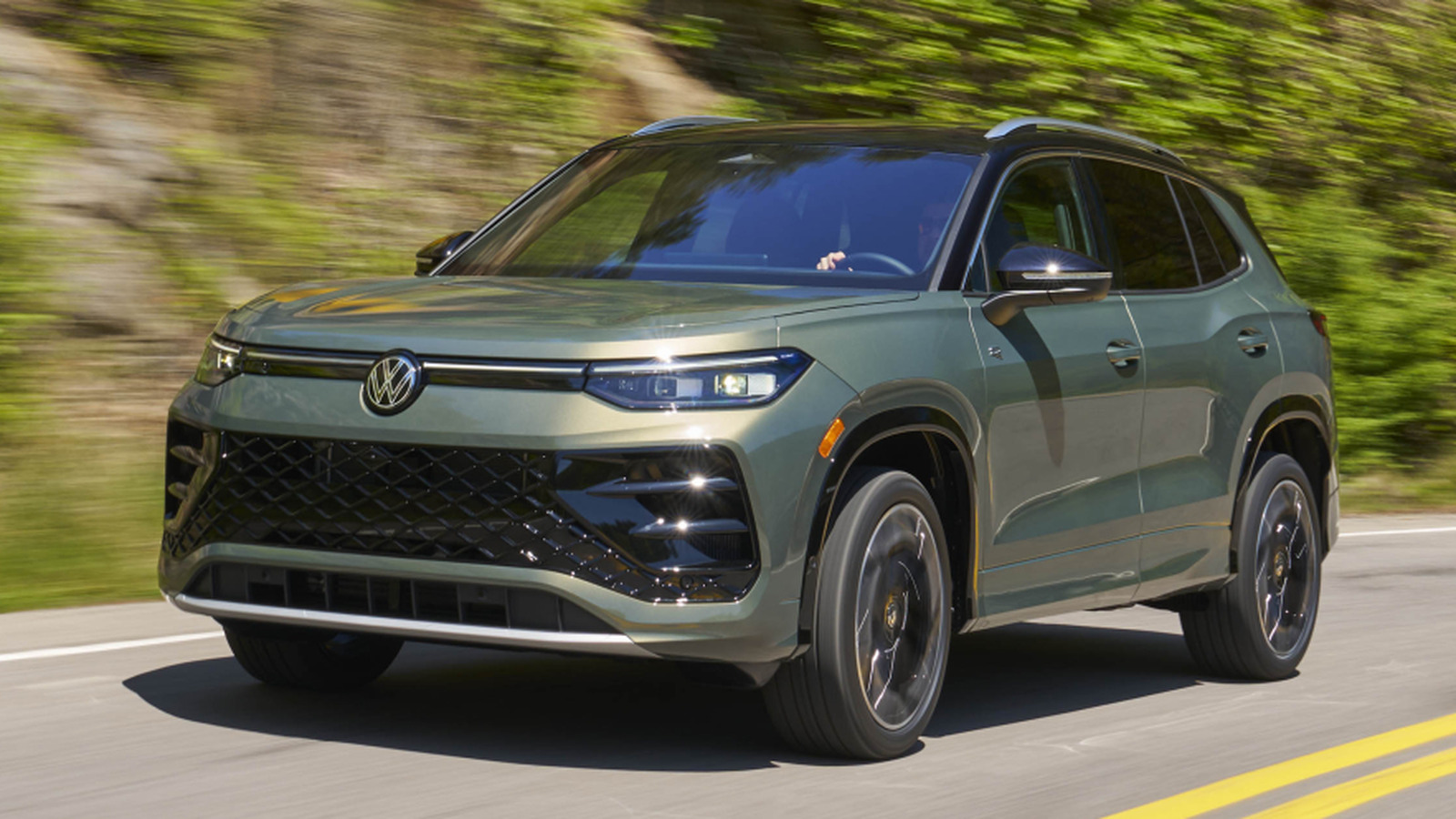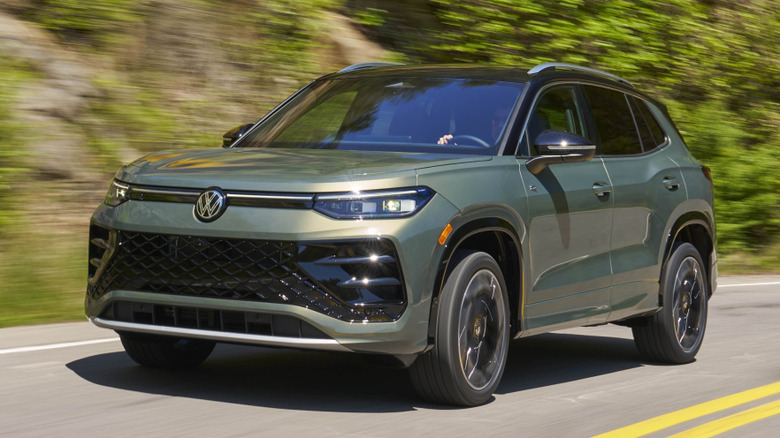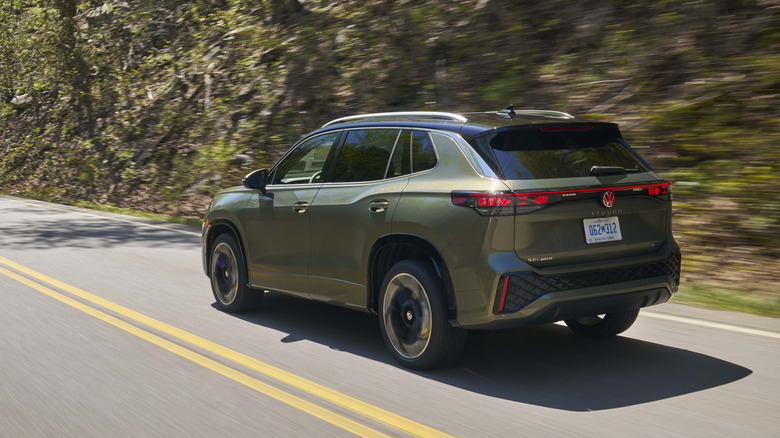The 2025 Volkswagen Tiguan improves over its predecessor in almost every way, changing it from a car you probably wouldn’t mind getting as a rental into one that can go toe-to-toe with the Honda CR-V and Toyota RAV4. As a result, we weren’t surprised to see Volkswagen raise the Tiguan’s starting price. Now, for the 2026 model year, Automotive News reports that VW has increased the base price by slightly more than $600 yet again. Except this time, it isn’t because the Tiguan got another full redesign. Instead, it sounds like tariffs are to blame.
For 2026, a base-model, front-wheel-drive Volkswagen Tiguan S will cost you $32,280, including destination, which works out to an extra $610 or 1.9%. It also marks the second price increase since the redesigned Tiguan first went on sale in May, where it was initially priced at $30,920. That means the new Tiguan is 4.4% more expensive than it was in March. It does come with an updated driver-assistance system, but other than that, there isn’t much the 2026 model offers that the 2025 model doesn’t.
The $610 price hike also only applies to S and SE models, regardless of whether you get front-wheel drive or all-wheel drive. If you want an SE R-Line, though, that price is up $1,090 for the 2026 model year, bringing the price up to $38,720 for the front-wheel-drive model and $40,220 if you want all-wheel drive. Back in March, you would have paid $36,880 or $38,380, respectively, for the same models.
At the top of the range, there’s now the SEL R-Line Turbo, which replaces the previous SEL R-Line and now costs $44,560 instead of $41,930. The SEL R-Line Turbo’s engine now makes an additional 67 horsepower, though, so at least you get something extra for your money.
Tariffs are taxes
As Petar Danilovic, Volkswagen of America’s senior vice president of product marketing and strategy, told Auto News, his view is that it’s normal for automakers to raise their prices from model year to model year. Although it does sound like he’s also suggesting that the tariffs Republicans so giddily support are behind these most recent price releases, with Danilovic saying, “Like all other brands, we look at what’s happening in the market, what our competitors are doing. Also, what is the cost of business on the other side? Then we make our decisions of ‘OK, where do we think it’s a reasonable price increase?'”
Danilovic was vague enough there that you could read his statement in a way that isn’t specifically referring to tariffs, but back in September, Volkswagen Group CEO Oliver Blume, was a little more blunt, telling reporters at the Munich motor show that, in response to tariffs, Volkswagen couldn’t raise its prices all at once. Instead, his plan was to take a more strategic approach, raising them a little here and a little there. “We have to do it carefully,” Blume said at the time. “We can’t push all that we are losing onto our customers and in one segment.”
In light of that statement, it sounds like Danilovic’s answer really was about tariffs. Is it reasonable for cars to get more expensive every year? Not necessarily, but if one guy in the White House gets to make everything more expensive just because he feels like it, then yeah, it’s completely reasonable for companies to raise their prices. Because that’s what happens when you start a tariff war. Prices go up. Sure, tariff revenue also goes up, but every time Trump brags about how much money those tariffs are bringing it, he’s just bragging about raising taxes on the American people.




